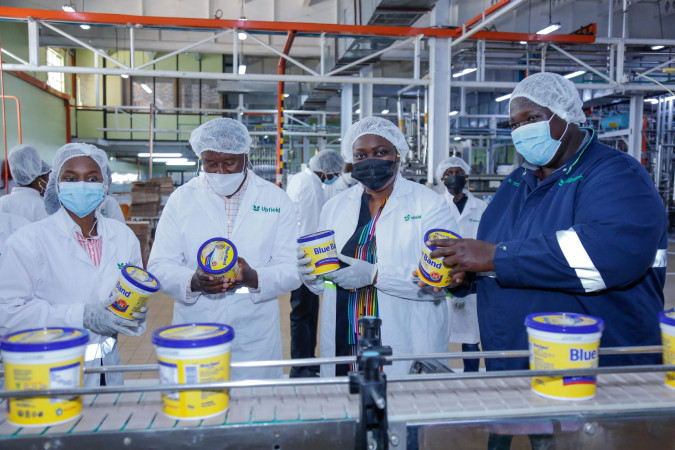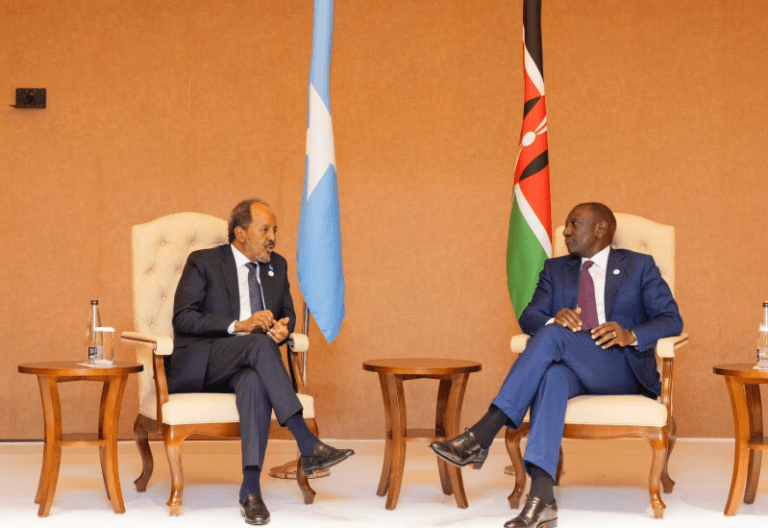Upfield races to keep Blue Band brand on the shelves

Blue Band’s new owner, Upfield is fast-tracking a major product diversification strategy to fight off competition and keep the iconic brand on the shelves.
Since the brand switched home from Unilever to the Dutch-based firm five years ago, it has struggled to reclaim its hitherto dominant position in the local market. This has forced Upfield to try out a plant-based spread as it widens the blue band family to tap changing consumer tastes.
Before selling its blue band processing plant, Unilever acknowledged in a 2016 report that the sales in margarine spread “declined as modest growth in emerging markets was offset by the continued but slowing decline in developed markets.”
Plant-based foods have little or no animal ingredients and are considered healthy and environment-friendly.
The firm recently expanded its portfolio to include Blue Band peanut butter, Blue Band Instant Porridge, and Flora Chilled spread, all of which have been well received by the customers.
Unnecessary costs
Upfield East and Southern Africa Managing Director Peter Muchiri said the firm has embarked on new initiatives on how it can remove unnecessary costs and inefficiencies that trigger cost spikes to end-consumers.
He said the firm intends to source ingredients locally as it moves to offset the rising cost of production occasioned by global pressures, shortage of raw materials, and costly freight charges. “We have been importing raw materials from India but we are now engaging farmers from different counties to source them locally,” Muchiri said during a media of the facility.
Upfield, he added, has always tried to keep the prices of most of its brands unchanged despite the surging production cost experienced in nearly every sector.
It is currently in partnership with Adventure Ltd, a company based out of Nanyuki, to source Canola oil from smallholder farmers in Kenya that are used in the manufacture of Blue Band Margarine and the recently launched Blue Band Cold Pressed Canola oil.
The partnership was projected to reach 7,500 farmers by the end of 2020. Upfield is a leading producer of plant-based spreads and cheeses with more than 100 brands, including iconic brands Flora, Rama, Proactiv, Becel, Country Crock, Violife and African jewel, Blue Band.
In 2020, Upfield announced a €50 million (Sh62.5 million) investment into the future of plant-based foods through a state-of-the-art Upfield Food Science Centre in Wageningen, Netherlands.
This combination has seen the company’s revenues and production surge since its 2018 acquisition from Unilever.
The Nairobi factory production volume in November and December 2021 surpassed the company’s 2874 and 2677 target volume by 10 per cent and four per cent respectively, a sign that its diversification is paying off. The factory, however, missed its 2021 yearly target by 2.23 per cent. However, the decrease in global output of bread-making wheat is likely to have a knock-on effect, making bread costlier and consequently lowering the use of bread spreads as households cut costs.
The decline in consumption of bread with starch could also spell doom to most retail margarine manufacturers.
A report by Stanbic Bank Purchasing Managers’ Index (PMI) already shows that input costs rose at the fastest pace in 41 months to February 2022, forcing manufacturers to pass on rising costs to end consumers as they adjust to the inflation surge.
Numerous campaigns
In recent times, the company has conducted numerous campaigns to have people diversify the use of blue band margarine by using it in Chapati, Ugali, and Githeri, the common meals in most households as the brand races after customers.
Unilever has been offloading its solid fat businesses in the last decade on low returns due to consumer choice change with many opting for less fatty products on health grounds.
In 2017, Unilever sold its margarine and spreads business to US private equity firm KKR for $8.04 billion to concentrate on faster-growing products in a deal that was closed in mid-2018.












